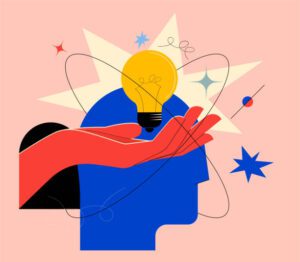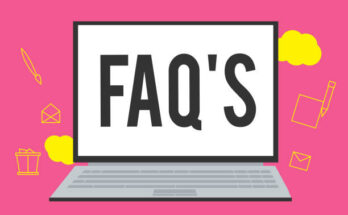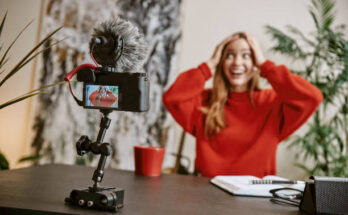Today’s American artists typically have numerous sources of income. Consider a successful musician who performs in the symphony of his city. He provides musical accompaniment for regional theatrical performances. Teaches private lessons, is an adjunct professor at the university. And leads a small band, and writes original music. These are numerous examples of skills.
These business skills are used by successful entrepreneurs in the arts to handle many projects and sources of income:
Financial knowledge
Multiple sources of income and expenses necessitate an organized system of meticulous record keeping. While some employers might pay you wages. And deduct your social security and taxes, other employers might pay you as an independent contractor. It becomes crucial for tax filing that you keep track of these income variations. In addition to noting your costs associated with each of these activities.
Marketing and social media strategies
 (Photo from istock)
(Photo from istock)
Many independent artists are replacing traditional marketing with an active online presence. This involves having a website that is attractive and being active on social media. Being active in your professional network can be achieved by participating in online discussions and showcasing your peers. Strive to strike the right balance between highlighting your own achievements and encouraging those of your peers.
Development of business
Finding funding for your endeavours and nurturing supporters of your cause are both parts of development. Crowdsourcing, grant writing, fellowships from the arts council, corporate collaborations, individual donations, and in-kind contributions are all forms of funding. In this field, business knowledge enables artists to select the best funding methods for any specific project.
Communication
In dance ensembles, music ensembles, and production teams throughout your training, you have honed your collaboration and communication skills as performing artists. These abilities will aid you in navigating the professional obstacles you’ll face, such as contract negotiations, media interviews, and developing a shared project vision.
Management and organization skills
Business activities are often not enjoyable for artists, and they eat up important time that could be spent on creative endeavours. In addition to practicing, giving a class, finishing a new piece of work, and performing, an artist might also pay bills, secure a gig, submit a grant application, react to emails, and compose a press release on any given day. The time you spend being an artist is maximized by excellent management abilities.
Understanding composition
Understanding composition, which encompasses learning about artistic techniques including color, texture, form, material, and space, is essential for a good artist. This composition enables artists to work with challenging materials, backgrounds, and concepts. It enables individuals to comprehend how their artwork appears in various lighting, space, and angles. Additionally, it helps the artist become familiar with fundamental principles like symmetry, the rule of thirds, and golden ratios.
Knowledge of art materials and skills
The basic instruments used by artists to express their thoughts on paper or in other media are called art supplies. A fine artist is skilled at successfully utilizing various art supplies, such as paints, brushes, and other tools, in their project. The fine artist can select the right supplies for the job by being aware of the benefits and drawbacks of various art supplies.
Knowledge of art mediums
A fine artist may employ clay, charcoal, oil paints, fabric paints, acrylic paints, and other materials to create their works of art. The artist can produce their work more skilfully and precisely by being familiar with these tools and methods. An artwork may be created using a variety of media, and prior knowledge is essential for its execution.
Thinking creatively
When developing concepts and giving creative direction for a project, creative thinking is a crucial fine arts skill. It entails conducting a comprehensive analysis of the issue and offering innovative solutions to a company. Moreover, artists can develop in fields like fashion, marketing, and advertising by using their creative thinking.
Networking
 (Photo from istock)
(Photo from istock)
Developing a network of like-minded professionals in the field could help you enhance your career. Working with various artists and business experts broadens your portfolio and may increase your chances of landing new possibilities. Hence, for the purpose of showcasing your work and growing your network, you can think about creating a website or a social media account.
Proportions of arts
Understanding dimensions and relative sizes is necessary for drawing people, landscapes, and objects. It enables viewers to associate the art to real-life objects, places, or people and aids artists in creating realistic artwork. Hence, artists who comprehend dimensions can produce symmetrical, balanced pieces of art.
Constantly gaining new skills
If you want to study new art skills like digital art, sculpture, or carving, think about enrolling in short or lengthy courses. It aids in building a portfolio with a variety of work that could aid in improving your professional chances. Additionally, acquiring new skills enables you to stay current with shifting market trends.
Mentorship
You can practice and learn under the direction of an accomplished artist to develop your craft and advance your career. It enables you to pinpoint your areas for development, pick up vital skills, and broaden your network. Furthermore, working with a mentor might also open up new chances and projects that will help you develop your skills and reputation.
Time management
An artist may work on several projects at once or have tight deadlines, so effective time management is crucial. Moreover, you might also need time to network, develop new skills, or even partake in private pursuits like exercise or meditation.
Problem solving skills
A fine artist’s responsibility includes critically evaluating a client’s request and offering suitable creative alternatives. Hence, the artwork you produce is influenced by your capacity for analysis.
Art branding skills
 (Photo from istock)
(Photo from istock)
You need to be able to build your own artist brand if you want your marketing and sales activities to be truly successful. Here are some fundamentals for developing your individual artist brand:
Name: The name you will use for your artistic work. Which name—your own or another—will you use? For more information on why we believe every artist needs a brand catchphrase, see our blog.
Every artist, in our opinion, should have a brand and logo. Does An Artist Art Brand Need a Logo? is a blog post where you can learn more. by visiting this.
References:
The New School
Want some beauty tips?, click on the link below:
How to conceal you dark circles at home





2 Comments on “Skills needed to start Art Business”